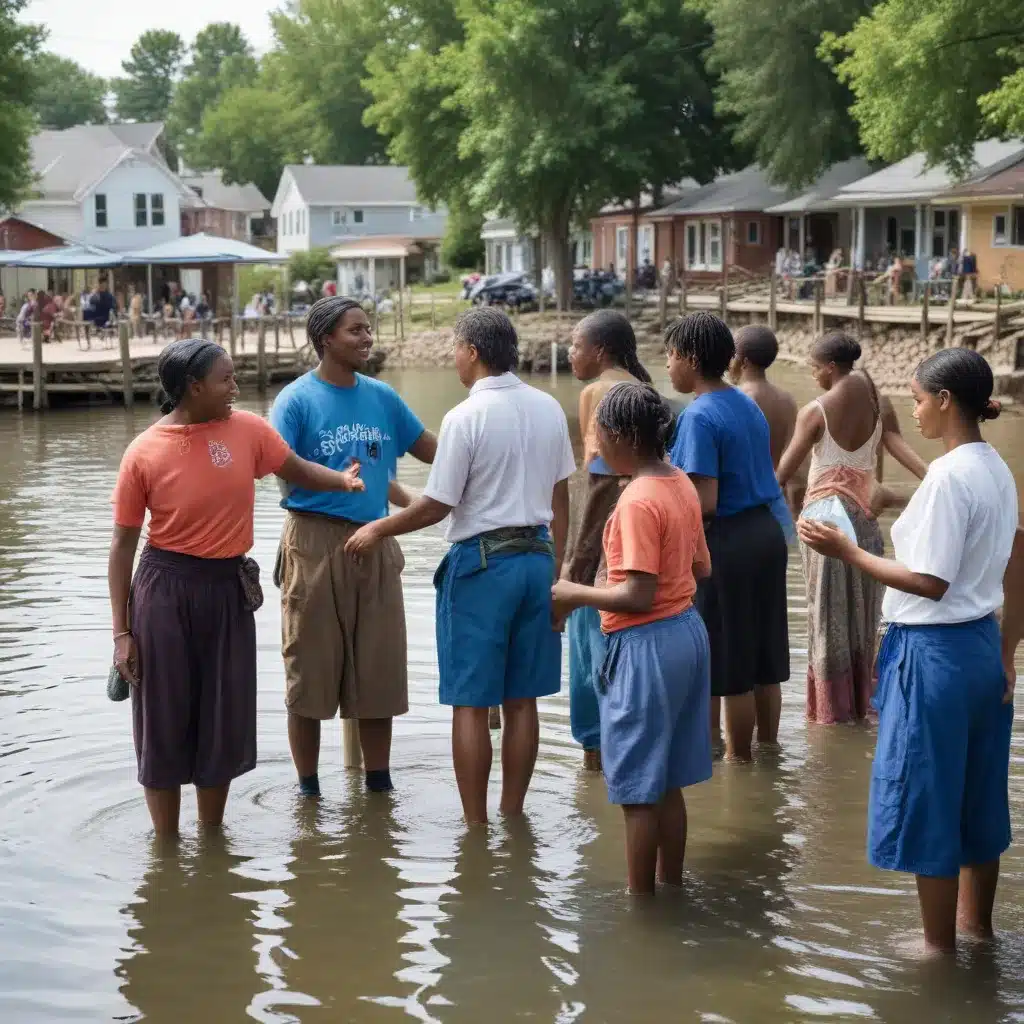
Unlocking the Power of Cultural Connections in Water Stewardship
Water is the lifeblood of our communities, yet access to clean, reliable water services remains a persistent global challenge. As seasoned experts in water and sanitation, we recognize that addressing this crisis requires more than just technical solutions. At the heart of effective water advocacy lies an understanding of the cultural nuances that shape how communities perceive and engage with this precious resource.
In this comprehensive article, we explore the critical role of culture in driving successful water-based advocacy efforts. By delving into the social determinants of health, the impact of water scarcity, and the power of community engagement, we uncover the strategies that can help bridge the gap between water management and cultural values.
Navigating the Social Determinants of Water Access
The availability and quality of water are inextricably linked to the social, economic, and environmental factors that shape a community’s well-being. As highlighted in the Social Determinants of Health Evidence Review, these “social determinants” can significantly influence access to clean water and adequate sanitation services.
Factors such as poverty, education, and systemic discrimination often create barriers to water security, disproportionately impacting marginalized communities. For example, in areas with high rates of poverty, residents may lack the financial resources to maintain household water infrastructure or connect to centralized water systems. Similarly, communities with lower educational attainment may struggle to navigate the complex bureaucracies and policies governing water resource management.
To address these disparities, water advocates must adopt a holistic approach that considers the broader social context. By collaborating with community stakeholders, policymakers, and public health professionals, we can develop targeted interventions that address the root causes of water insecurity and promote equitable access.
The Cultural Significance of Water
Water is not just a physical resource; it holds deep cultural significance for communities around the world. As the World Wildlife Fund highlights, water scarcity can have profound impacts on cultural practices, traditional livelihoods, and spiritual beliefs.
In many indigenous communities, for instance, water sources are revered as sacred entities, with intricate rituals and spiritual connections woven into their management and use. Disrupting these cultural ties can have devastating consequences, both for the community’s well-being and the long-term sustainability of water resources.
Similarly, water-based professions, such as fishing or irrigation-based agriculture, may form the backbone of a community’s cultural identity and economic stability. The loss of these livelihoods due to water scarcity can erode social cohesion and disrupt the intergenerational transfer of traditional knowledge.
Effective water advocacy must recognize and respect the cultural significance of water, incorporating community values and traditional practices into sustainable water management strategies. By working in partnership with local stakeholders, we can develop solutions that resonate with the community and ensure the long-term viability of water resources.
Amplifying Community Voices in Water Advocacy
Successful water advocacy hinges on the active participation and leadership of community members. As the American Occupational Therapy Association emphasizes, empowering communities to shape the contexts and environments that impact their well-being is crucial for driving lasting change.
Water-based advocacy initiatives should prioritize inclusive, community-driven approaches that give voice to diverse perspectives. This may involve:
- Organizing town hall meetings and public forums to solicit community input on water-related challenges and solutions.
- Partnering with local cultural organizations and community leaders to understand the unique water-related needs and values of different groups.
- Providing training and capacity-building opportunities to empower community members to become active participants in water resource management and policymaking.
- Collaborating with community-based organizations to develop culturally relevant educational campaigns and outreach programs on water conservation and water quality.
By elevating community voices and fostering a sense of shared ownership over water resources, water advocates can build trust, increase community engagement, and develop sustainable solutions that resonate with the local context.
Overcoming Barriers through Culturally Responsive Advocacy
Despite the critical importance of cultural considerations in water advocacy, numerous barriers can impede progress. As the PMC article highlights, a “culture of doubt” fueled by misinformation, uncertainty, and distrust can undermine even the most well-intentioned efforts.
Water advocates must be prepared to navigate these cultural barriers thoughtfully and transparently. This may involve:
- Addressing community concerns with evidence-based information, presented in a clear and accessible manner.
- Collaborating with trusted community leaders and organizations to build bridges and foster open dialogue.
- Developing culturally responsive educational materials and outreach strategies that resonate with diverse audiences.
- Advocating for policies and programs that recognize and accommodate the cultural needs and preferences of local communities.
By demonstrating a deep understanding and respect for cultural nuances, water advocates can overcome resistance, build lasting partnerships, and drive meaningful, community-led change.
Embracing the Currents of Community
As water and sanitation experts, we recognize that the path to equitable, sustainable water management is paved with the rich tapestry of cultural values and community engagement. By embracing the currents of community, we can unlock the transformative power of water-based advocacy and ensure that every person has access to the clean, reliable water resources they need to thrive.
Through continued research, collaboration, and a steadfast commitment to cultural responsiveness, we can navigate the complex social determinants of water access, amplify community voices, and develop solutions that resonate with the unique needs and aspirations of diverse populations.
Join us in this vital mission as we chart a course towards a future where water is not just a fundamental human right, but a shared heritage that binds us together in our collective stewardship of this precious resource. Together, we can harness the power of culture to create lasting, impactful change in water and sanitation services around the world.
Visit Joint Action for Water to learn more about our work and how you can get involved in the movement for water-based advocacy.

